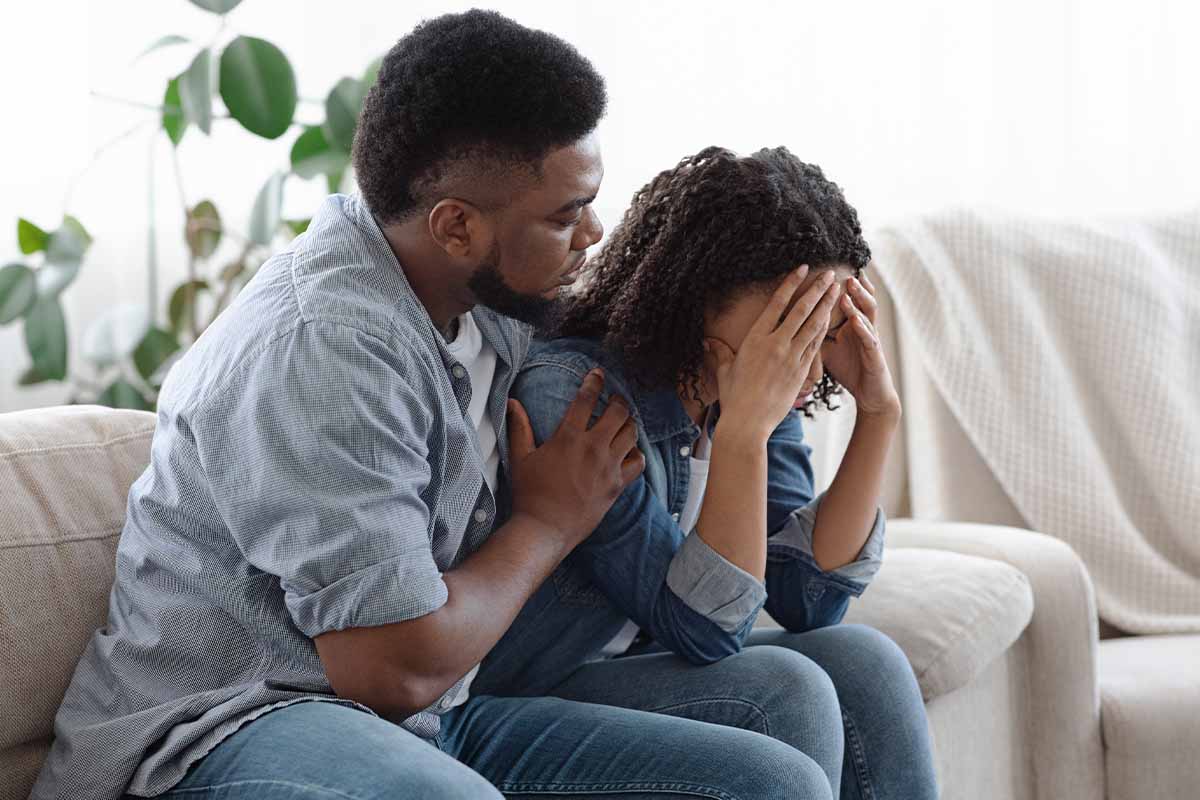Change is inevitable, and long-term couples have the advantage of getting to know each other all over again as they grow together.
If basic survival needs like water, air, food, and shelter are the resources we need to function as human beings, then emotional needs are what determines our quality of life, and ultimate happiness. The act of companionship, affection, security, and appreciation are crucially valuable experiences that help develop emotional resilience, as does feeling heard and valued in any kind of partnership or relationship.
Although every relationship may look different depending on the emotional makeup of both partners involved, here are 10 emotional needs that need to be met in order for any relationship to have a healthy balance.
1. AFFECTION
Affection can be expressed through:
- physical touch
- sexual intimacy
- loving words
- kind gestures
Affection is important in any intimate relationship as it helps people bond and foster closeness between each other. Affection can be expressed both physically or non-physically such as through acts of service or vocal expression. It’s also important to note that everyone has different ways of expressing affection.

Problems in relationships tend to arise when affection that was plentiful in the beginning wanes over time, or if someone who is physically expressive gets into a relationship with someone who isn’t. Relationships teach us a lot about ourselves and the ways we feel comfortable giving and receiving love. People who are avoidant of affection, be it giving or receiving, will probably need to learn more about themselves to discover others ways they feel comfortable expressing care and concern for others.
2. ACCEPTANCE
Knowing your partner accepts you as you are can help create a sense of belonging in the relationship. Acceptance isn’t just you being accepted as a partner, it is also how you feel around your partners close friends and family.
This sense of belonging might increase when they:
- introduce you to family and friends
- plan activities to do together
- share dreams and goals for the future
- ask for advice when making decisions
If these indicators are not present, then it isn’t a comfortable place to be because it creates uncertainty. However, some people don’t open up easily, and they might have other reasons for not including you in certain parts of their life. All the same, feeling like you don’t belong can make it difficult for you to see yourself in the relationship long term.
If acceptance is lacking in your connections, invite them to meet your friends and family, and use this to open a conversation about how you’d like to be more involved in their life. Expressing your expectations ensures you get what you need. If someone is unable to meet them, do the right thing and move on.
3. VALIDATION
Even the closest partners don’t always see eye to eye, that’s acceptable. When you don’t completely agree, though, you still want to know they’ve heard your concerns and understand where you’re coming from.
According to relationship experts, most couples find it important to operate on the same wavelength. When your partner completely fails to see your perspective, you might feel misunderstood, and if they dismiss your feelings entirely, you might feel ignored or disrespected.

If you generally feel validated, but this happens once or twice, it’s possible they had an off day. Regardless, it doesn’t hurt to have a conversation to share how you feel. But if you consistently feel unheard or invalidated, you might start to build up some resentment, so it’s best to address the issue sooner rather than later.
4. AUTONOMY
As a relationship deepens, partners often begin sharing interests, activities, and other aspects of daily life. You might notice you’re becoming more of a unit as you grow closer. But no matter how strong your relationship becomes, it’s essential to maintain your sense of self. While you might have plenty of things in common, you’re two separate people with unique goals, hobbies, friends, and values — and that’s a good thing.
If your identity has started to blur into theirs, take a step back to examine the situation. This blending of selves can happen naturally as you grow close, but it can also happen when you believe you need to become more like them for the relationship to succeed.
In reality, maintaining individual interests can fuel curiosity about each other, which can strengthen your relationship and keep it fun. If you’re losing sight of yourself before the relationship, set aside some time to reconnect with friends or restart an old hobby.
5. SECURITY
A healthy relationship should feel secure, but security can mean many things.
If you feel secure in your relationship, you generally:
- know they respect your boundaries
- feel safe to share your feelings
- feel physically safe with them
- believe they support your choices
- feel able to share your feelings
Setting clear boundaries can help boost your sense of security such as communicating how you would like to be spoken to.

If your partner becomes abusive, seek professional support. Physical abuse is often easy to recognize, but emotional abuse can make you feel unsafe, too, even if you can’t put your finger on why.
6. TRUST
Trust and security often go hand in hand. It’s hard to feel physically or emotionally safe with someone you can’t trust, and when you trust someone, you know they’re looking out for you as well as themselves.
If you start to doubt them, try bringing up specific behaviors, such as staying out late without explanation. This helps you get to the bottom of what’s going on while touching base on communication needs.
In general, trust doesn’t happen immediately. You cultivate it over time, but you can also lose it in an instant. Broken trust can sometimes be repaired, but this requires effort from both partners and often, support from a therapist.
Be upfront about how you’ll handle breaches of trust in the relationship. While your specific response might vary based on the context of a given situation, you probably have a good idea about behaviors you can’t accept, such as infidelity or lying. Don’t feel guilty about making those deal breakers known to your partner.
7. EMPATHY
Having empathy means you can imagine how someone else feels. This ability is essential to any relationship since it helps people understand each other and build deeper bonds. Cultivating empathy in relationships leads to people feeling understood if they have unintentionally hurt you, forgotten an important celebration date, or fail to make time for you if they’re caught up with other responsibilities.
Practising empathy helps people to accept the vulnerable parts of themselves, and gives them a chance to improve on whatever is holding them back from doing better for themselves. Empathy also teaches us as individuals to be kinder to ourselves.
8. PRIORITIZATION
It’s pretty normal to want your partner to make you a priority. You want to know you come first and that after they meet their own needs, yours are next in line. However, from time to time, someone else in their life might need to come first, such as a friend going through a crisis or a family member experiencing a rough patch.
Generally, if you don’t feel like a priority in their life at all, you probably feel as if they don’t really value your presence. This can make you wonder why they even bother with the relationship. In this case, an honest conversation between both parties need to happen to ascertain if there is enough compatibility to maintain a relationship. Naturally, if there isn’t an equal give and take, it’s not a relationship that will last.
9. CONNECTION
It’s perfectly fine to not do everything together. In fact, maintaining separate interests and friendships can be good for individual mental health, as well as the health of your relationship. But you probably want to feel connected at the same time and that’s perfectly understandable. What are relationships for, if not sharing your life?

Without connection, you can feel lonely even when you spend most of your time together. It might seem as if you’re just two people who happen to share a living space or spend time together sometimes. Chances are good that’s not how you want your relationship to proceed.
The good news is reconnection is very possible if both parties are willing to try a completely different approach to their relationship. Change is inevitable, and couples who have spent a long time together have the advantage of getting to know each other all over again as they grow together. This will be a great time to try new things together and discover new ways of connecting.
10. SPACE
Connection is important, but so is space. Space within a relationship means you both have the freedom to do your own thing when you want to. You feel supported but know you can make your own choices.
It also means you still enjoy some privacy. This privacy can mean separate spaces to work or relax at home, but it also means emotional privacy. Being honest doesn’t mean you need to share every thought that crosses your mind.
For example, if you’re having a bad day, getting some physical and emotional space can help you work through these thoughts in healthy ways and avoid taking things out on your partner. When it comes to space, asking for what you need is key.

















